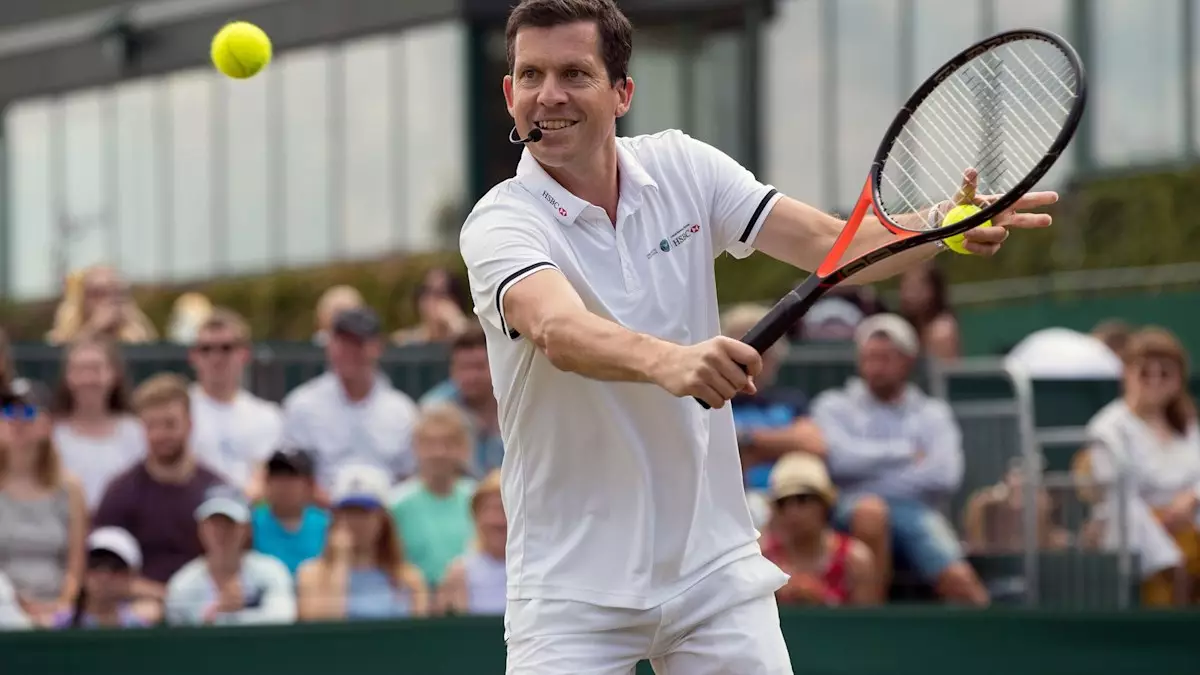After retiring from competitive tennis 17 years ago, Tim Henman has shifted his focus towards family life in Oxfordshire. Living with his wife Lucy and three daughters, Rosie, Olivia, and Grace, Tim seems to have found contentment in his domestic life. His work in the commentary team for BBC’s Wimbledon coverage also keeps him connected to the sport he once excelled in. However, one cannot help but wonder if there are any regrets or unfulfilled aspirations lingering beneath the surface of this seemingly tranquil life.
In his short biography, Tim Henman reveals his greatest fear post-retirement – the loss of health. This fear is understandable, considering the physical demands of professional tennis and the toll it can take on one’s body. Tim reflects on a time when he broke his ankle in 1994, which forced him to stay off the court for five months, marking it as the most frustrating time of his career. The loss of two aunts and a grandfather to cancer has also provided him with a stark reminder of life’s fragility and the need to prioritize what truly matters. Tim’s perspective on life seems grounded and mature, acknowledging that while tennis was a significant part of his life, there are more important things beyond the sport.
Reflecting on the impact of the Covid-19 pandemic on tennis players, Tim expressed concerns about injuries following a prolonged rest period. He highlighted the physical challenges that players may face upon their return to matches, especially in tournaments like the US Open where best-of-five-set matches can be physically demanding. Tim’s insights shed light on the potential risks that athletes face after a period of inactivity, emphasizing the importance of taking care of one’s body to prevent injuries. His thoughts on the readiness and eagerness of players to return to the sport indicate a sense of camaraderie and passion within the tennis community.
Tim Henman admits to having a tendency towards hyperactivity and the habit of cracking his knuckles, which he acknowledges as potentially harmful. Despite his background in tennis, Tim confesses that playing the sport is not a top priority for him anymore. Instead, he describes himself as a golf addict, preferring to spend his free time on the golf course rather than the tennis court. This shift in focus raises questions about how athletes navigate their identities and interests post-retirement, as well as the challenges of maintaining physical fitness outside of their professional sporting careers.
Tim Henman’s post-retirement life offers a glimpse into the complexities of transitioning from a successful athletic career to a more subdued and domestic existence. His reflections on health, perspective on life, concerns about returning to competition, and shift in fitness priorities illustrate the multifaceted nature of life after professional sports. While Tim seems content with his current pursuits, one cannot help but wonder about the hidden challenges and aspirations that may lie beneath the surface of this outwardly peaceful life.

